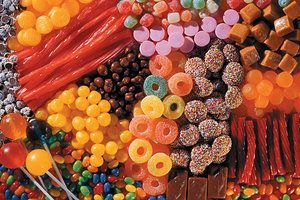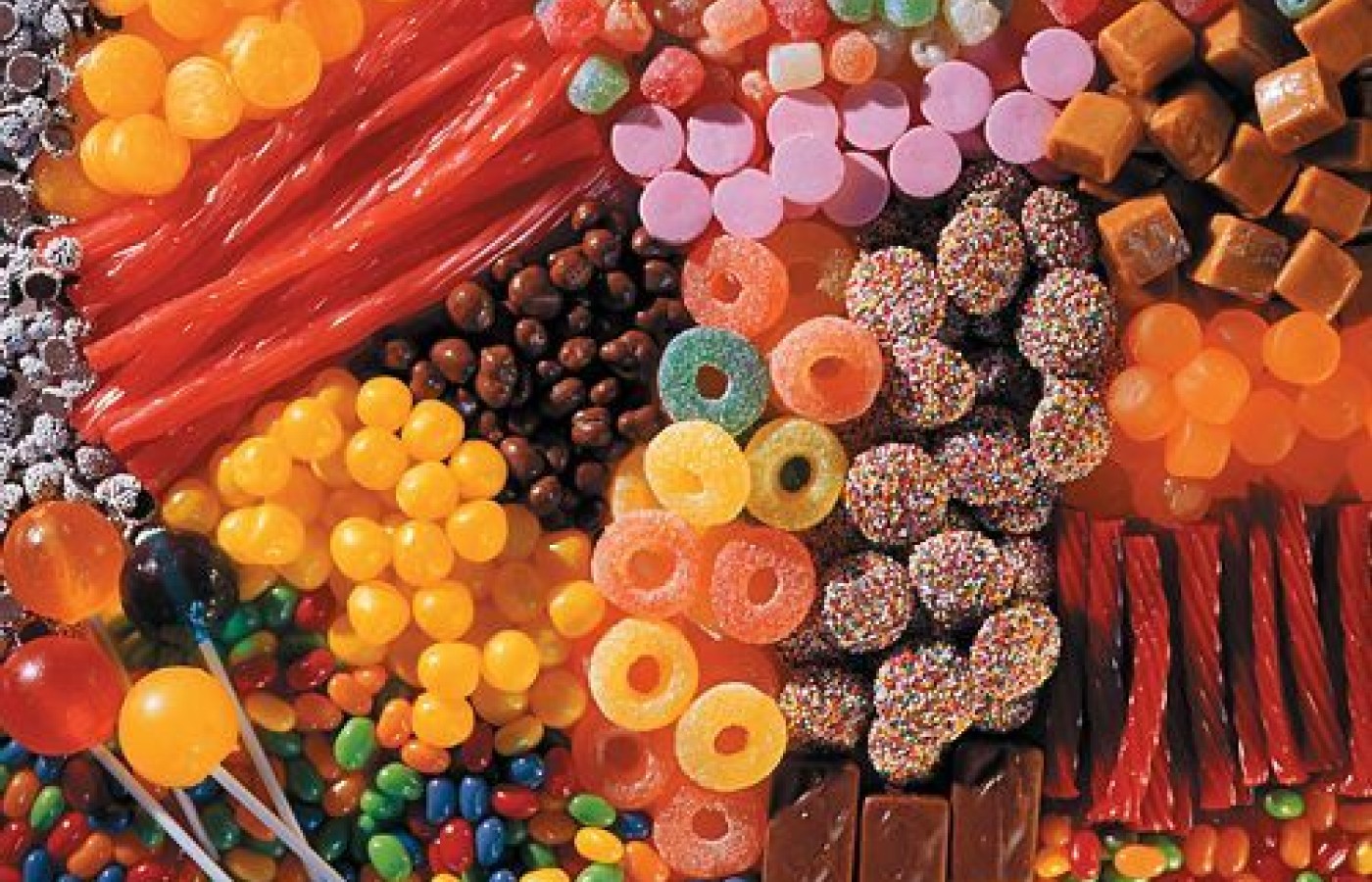It’s a new year and many chiropractors are evaluating what will enhance their respective practices, particularly as it relates to their bottom line. One of the most common questions I get is: “Do I need to be credentialed to bill insurance, and what are the best plans to join?” It’s a loaded question – but one every DC ponders. Whether you're already in-network or pondering whether to join, here's what you need to know.
Dietary "Crackheads" and the Never-Ending Battle Against the Bulging Waistline
It's April and most of the nation is thawing out from winter and looking forward to spring. The winter season is when it is easiest to gain weight – it gets dark earlier, so there is less time to be active outdoors, and we are faced with a six-month run of calorie-laden holidays, starting with Halloween and ending at Easter. Holiday eating is out of control for many Americans.
We get out of control because eating represents emotion in action. We have all heard someone say, if not ourselves: "I couldn't stop myself from eating." Weight control is really about emotion control; that is, we need to learn to effectively deal with base human drives that are always present.
Are We Wired to Gain Weight?
The primary issue that besets us all is that the human body is actually hardwired to gain weight if the opportunity arises. And so without a conscious effort to control caloric intake, we will all overeat and gain body fat.
Historically, food was not plentiful, so packing on pounds gave humans a survival advantage when food was scarce. This is why it is so easy for us gain weight. The problem, in terms of weight gain, is that food is not scarce anymore and high-calorie, refined carbohydrates are readily available as sugar, flour products, soda and other sweetened beverages.
Addiction Chemistry

The problem with refined carbohydrates is the addiction chemistry induced when we eat these foods, which is why we always want them. Whenever we are craving sweets, our addiction chemistry is active and seeking reward from sugary / floury white powder … as if we are dessert "crackheads." It seems we get addicted to the sugar and the added fat brings up the calorie content.1
So, I thought about my own personal previous encounters with sugar. I never really liked chocolate that much when I was a kid, but developed a taste as an adult when I learned dark chocolate is anti-inflammatory. As I examined the dessert "crackhead" memory banks of my own brain, what I came up with is candy corn, Snickers bars, and marzipan. I was also a fan of Twinkies, cinnamon toast, donuts and ice cream. I have not had a Whopper from Burger King in many years, but I can still smell and taste it in my mind, and so my brain contemplates a "drive-by self-shooting" at Burger King.
I would argue that careful moderation when it comes to these "crackhead" foods is reasonable. Otherwise, the use of the term moderation is really how out-of-control dessert and fast-food "crackheads" rationalize their behavior, which includes a very "moderate" intake of vegetables and fruit that often excludes green vegetables.
Dealing With the Dietary "Crack Head" in Us All
I go through periods during which I feel my limbic system, the home of the dietary "crackhead," is working overtime to get me to head over to the gelato shop downtown and clean the place out. Usually this happens when I am tired because of a lack of sleep or a long day, or because of stress. And not surprisingly, the data is very clear that inadequate sleep and stress increase the release of the hunger hormone ghrelin that propels us toward food reward.2-4 When this happens, it is a good idea to exercise or get very engaged physically with cleaning or yardwork, which has an appetite-suppressing effect and a limbic system-reward effect.5-6 Reward refers to anything from which we get pleasure.
The point is that if you have excess body fat or the tendency to gain, then you have to accept that you are a dietary "crackhead." Most of us are dietary crackheads, and I certainly am, so you are not alone and should not feel guilty or abnormal. If you have let the inner "crackhead" take charge, you need to gain dominion over your limbic system and stop letting it run the show.
I have accepted that I am a dietary "crackhead" and force my frontal lobe into action to enforce good dietary behavior, which stops the limbic system from acting up and realizing my fantasy of downing six donuts and engaging in regular drive-by self-shootings. As a consequence, for many years, I have weighed the same as my junior year of college. I have been 10-20 pounds heavier at various times, so the inner "crackhead" definitely has not been properly disciplined at different periods of my life.
Withdrawal Symptoms
Researchers have identified that humans and animals have a withdrawal experience when not consuming sugar, which is not unlike opiate withdrawal.1 People actually suffer just thinking about never again eating a sugary, floury, fatty dessert. This is actually a very good way to test yourself to identify the aggressiveness of your own personal dietary "crackhead."
Two Interesting Movies to Watch
"Fat Head" is an excellent movie that effectively debunks the more famous movie, "Supersize Me." For one month, the writer / director / actor of "Fat Head" eats only fast food, but does so with a daily caloric intake of 2,000 calories and no more than 100 grams of carbohydrate. In one month, he loses 12 pounds of mostly body fat, demonstrating that we can lose weight / fat by mostly eating at McDonald's if it is done properly. HDL levels dropped during the month, which was properly attributed to the consumption of trans fats. While I do not eat at fast-food restaurants, "Fat Head" demonstrates that you can eat fast food exclusively, or at least occasionally, still lose weight and keep it off.
On the opposite end of the eating-to-lose-weight spectrum, I also suggest watching "Fat, Sick and Nearly Dead," which chronicles the journey of an Australian man who comes to America for a two-month juice fast. He arrives in New York City, stays for 30 days and then drives to the West Coast. In short, he drops 30-40 pounds, cures himself of what was diagnosed as autoimmune urticaria and becomes drug free.
A Normal Diet for Weight Management
These two movies highlight extremes of eating behavior, neither of which is normal for humans. We should try to be "normal" in our eating patterns. The Paleo diet has become popularized in recent years and refers to the natural dietary patterns of indigenous populations. In other words, the original Nordic diet, Mediterranean diet and Native American diet were all different, but were all Paleo diets. They were free of refined carbohydrate and consisted mostly of lean meat, fish, and vegetation. This is the "normal diet" for humans and not surprisingly, is associated with normal body-weight gain and long-term health. Thus, we should endeavor to be mostly "normal" with our eating patterns throughout our lives, which naturally leads to proper weight management.
References
- Avena NA, Rada P, Hoebel BG. Sugar and fat bingeing have notable differences in addictive-like behavior. J Nutr, 2009;139:623-28.
- Nedeltcheva AV, Kilkus JM, Imperial J, Schoeller DA, Penev PD. Insufficient sleep undermines dietary efforts to reduce obesity. Ann Int Med, 2010;153:435-41.
- Chuang JC, Perello M, Sakata I, Osborne-Lawrence S, Savitt JM, Lutter M, Zigman JM. Ghrelin mediates stress-induced food-reward behavior in mice. J Clin Invest, 2011;121(7):2684-92.
- Maniam J, Morris MJ. The link between stress and feeding behaviour. Neuropharmacol, 2012;63:97-110.
- Martins C, Kulseng B, King NA, Holst JJ, Blundell JE. The effects of exercise-induced weight loss on appetite-related peptides and motivation to eat. J Clin Endocrinol Metab, 2010;95(4):1609-16.
- Salmon P. Effects of physical exercise on anxiety, depression, and sensitivity to stress: a unifying theory. Clin Psychol Rev, 2001;21:33061.



